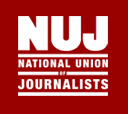
It's very rare that I post an entire article from another writer on this blog, but this piece in today's Guardian by the former New Statesman editor Peter Wilby (above) is just so good- and so important- that it deserves the widest possible circulation.
It is a matter of record that the British press, and the American press even more so, failed badly to expose the flimsiness of the case for going to war in Iraq. Will it fail again as the threat of an attack on Iran grows? The verdict from a conference on "War, truth and the media", attended by some 250 media workers and students in London in Saturday, was an overwhelming "yes". We have already started to accept, without significant questioning, that Iran will shortly develop nuclear arms, that it will then threaten Israel and the rest of the Middle East, and that it is responsible for much of the conflict in neighbouring Iraq. The assumption that Iran is a wicked aggressor is buried in the language we use. As Tony Benn pointed out, British and American nuclear weapons are "deterrents", Iran's will be "weapons of mass destruction".
The media's failings are systemic. Whether it's Iraq, Iran or our domestic "fight" against terrorism, the official, government-approved narrative dominates. To be sure, facts that don't fit the narrative are frequently reported: for example, the Guardian revealed last year that tens of thousands of small arms now in the hands of private Iraqi militias were secretly shipped from Bosnia by the Pentagon. But suggestions that the anarchy in Iraq suits America perfectly - because private capital can step in to buy up the country's assets and the US can retain control of the oil - are discounted. Alternative narratives of this sort have been developed by, for example, Naomi Klein in her book The Shock Doctrine and the New York Times and New Yorker journalist Jim Holt. But they are treated as marginal, eccentric curiosities, which never inform the media's day-to-day approach to Iraq and Iran.
We live in what has been called "the public relations state". Governments try to control the news agenda to a far greater extent than even 20 years ago and, as media organisations slash their editorial budgets, official PR steps into the vacuum. Titbits of information about the "threats" from Iran are fed to the media, often through selected journalists and often from intelligence sources. Reporters and editors, delighted with their "scoops", are not likely to subject them to too much critical scrutiny. In any case, they lack the resources to verify them. Their rivals, finding the stories confirmed by official sources, follow them up and give them further credence. Stories that don't fit the official narrative are denied and derided and therefore quickly die.
There is no conspiracy, no direct censorship. It is just the way the system works, with information from official sources crowding out everything else. In 2008, the truth about Iran will be as elusive as was the truth about Iraq in 2002 and 2003.




1 comment:
Cheers for highlighting this Neil and congratulations on your Blog award - I've been reading it for quite a while now.
I've linked to your post and also said a little about Wilby, who I worked with for a short time, here:
http://www.nicholasmead.com/2007/11/
media-drumroll-to-irans-invasion.html
Post a Comment